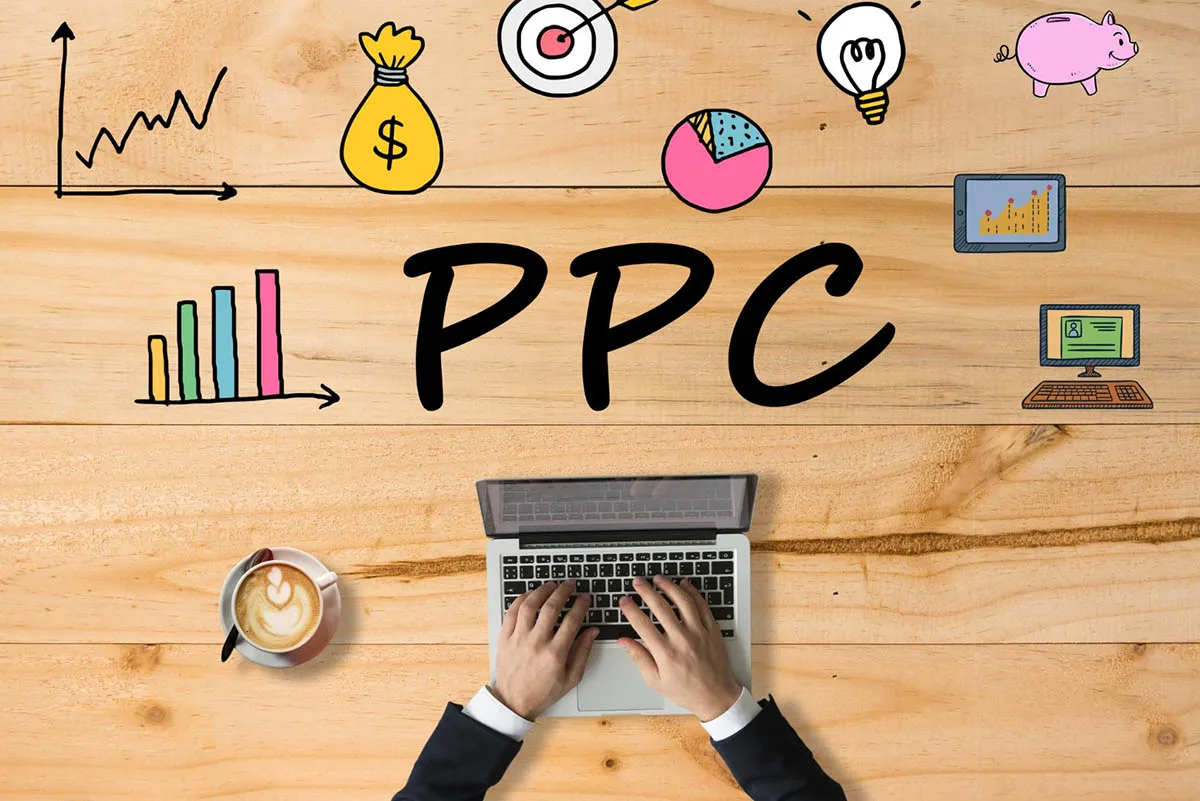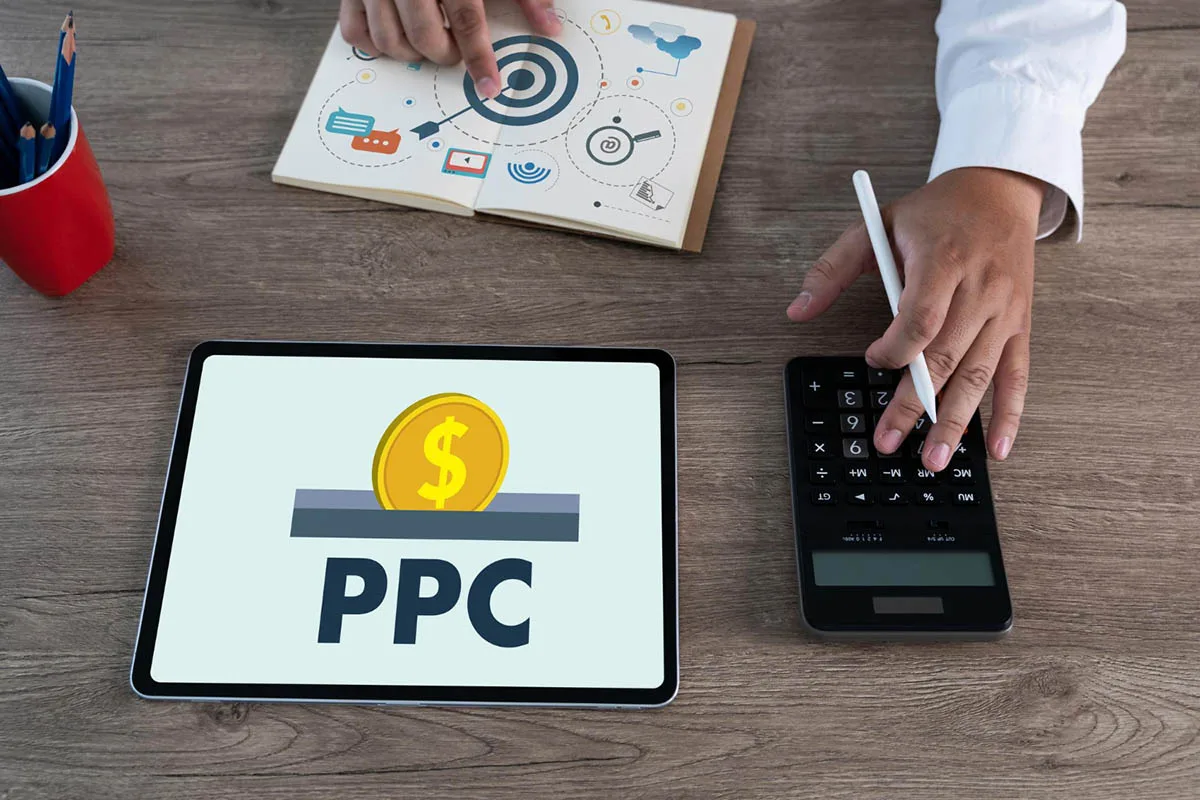Pay-per-click (PPC) advertising is a powerful tool for driving traffic to your website. But to get the most out of your PPC campaigns, you need to optimize them. Optimization helps ensure you’re getting the highest return on investment (ROI) from your ad spend. Without proper optimization, you might waste money on ineffective ads and miss out on potential customers. Research shows that businesses with optimized PPC campaigns see a big boost in ROI. This makes it crucial to follow best practices for improving your campaigns.
Understanding ROI in PPC Advertising
Understanding how well your PPC campaigns are performing is key to maximizing your advertising budget. ROI, or Return on Investment, is a measure that helps you evaluate the effectiveness of your ads. It shows you whether the money you spend on PPC is generating enough profit to justify the investment.
What is ROI in the Context of PPC?
ROI, or Return on Investment, measures how much profit you earn from your PPC advertising compared to what you spend. It’s calculated using the formula:
ROI= ((Revenue from PPC−Cost of PPC) / Cost of PPC ) x 100%
In simpler terms, ROI tells you how effective your PPC ads are at generating revenue. A higher ROI means that your ads are successful at driving profitable traffic.
Key Metrics to Track for PPC ROI
To understand and improve your ROI, focus on these key metrics:
- Cost per Click (CPC): This is how much you pay each time someone clicks on your ad. Lower CPC can help increase ROI if your conversions are steady.
- Conversion Rate: This shows the percentage of visitors who take the desired action after clicking on your ad. Higher conversion rates generally lead to better ROI.
- Cost per Conversion: This is the cost of acquiring a customer through PPC. Lowering this cost can significantly boost your ROI.
- Quality Score: This metric, provided by PPC platforms like Google Ads, measures the relevance and quality of your ads. A higher Quality Score often leads to lower CPC and better ad placements.
Best Practices for Optimizing PPC Campaigns

To get the best results from your PPC campaigns, follow key best practices. Optimization means fine-tuning your campaigns to use your budget effectively and get the most return. By focusing on important areas like keyword research, ad copy, and bid management, you can make your ads more effective and increase your ROI.
Conducting Thorough Keyword Research
Effective keyword research is the foundation of a successful PPC campaign. Here’s how to do it:
Find Relevant Keywords: Use tools like Google Keyword Planner or SEMrush to discover keywords that your target audience is searching for.
Consider User Intent: Focus on keywords that match the intent of your potential customers. For example, “buy running shoes” indicates a purchase intent, which is more valuable than a general search like “running shoes.”
Analyze Competitors: Look at the keywords your competitors are targeting to find gaps and opportunities.
Crafting High-Performing Ad Copy
Your ad copy needs to grab attention and drive clicks. Here’s how to create effective ads:
Write Compelling Headlines: The headline is the first thing people see, so make it engaging and relevant to the search query.
Include Clear Calls-to-Action (CTAs): Tell users what you want them to do next, like “Shop Now” or “Learn More.”
Highlight Unique Selling Points: Focus on what makes your product or service stand out, such as special offers or benefits.
Effective Bid Management Strategies
Managing your bids effectively can help you stay within budget while achieving your advertising goals. Here’s what to consider:
Choose the Right Bid Strategy: Decide between manual bidding, where you set bids for each keyword, or automated bidding, where the platform adjusts bids to maximize results.
Adjust Bids Based on Performance: Increase bids for high-performing keywords and reduce bids for those that aren’t delivering results.
Monitor Budget Allocation: Ensure that your budget is distributed effectively across your keywords and campaigns.
Utilizing Ad Extensions
Ad extensions can make your ads more appealing and improve performance. Here’s how to use them:
Sitelink Extensions: Add extra links to different pages on your website. This helps users find what they’re looking for more quickly.
Callout Extensions: Highlight additional benefits or features of your product or service.
Structured Snippet Extensions: Provide specific information about your offerings, like “Types of Insurance” or “Hotel Amenities.”
Implementing Conversion Tracking
Conversion tracking is essential for understanding how your PPC ads are performing. Follow these steps:
Set Up Conversion Tracking: Use tools like Google Ads or Bing Ads to track actions users take after clicking your ad, such as making a purchase or signing up for a newsletter.
Analyze Conversion Data: Look at the data to see which keywords and ads are driving the most conversions. This helps you understand what’s working and what needs improvement.
Refine Your Campaigns: Use the insights from conversion tracking to adjust your keywords, ad copy, and bidding strategies.
Role of Power-Devs in PPC Optimization

Power Devs are key to improving PPC campaigns by using advanced technology and automation. They make your ads more effective by integrating tools, automating tasks, and enhancing user experience. Their technical skills and strategies help you get better results from your PPC investments.
Integrating Advanced Analytics and Reporting
Power-Devs play a crucial role in optimizing PPC campaigns by integrating advanced analytics and reporting tools. They use these tools to:
- Develop Custom Reports: Power Devs create tailored reports that provide deep insights into PPC performance. This helps businesses understand their ROI better and make informed decisions.
- Build Dashboards: They build dashboards that track key metrics and performance indicators in real time. This allows for quick adjustments and continuous optimization.
Automating PPC Campaign Management
Automation is key to managing PPC campaigns efficiently. Power Devs contribute by:
- Creating Automation Scripts: They develop scripts that automate repetitive tasks, such as bid adjustments or keyword management. This saves time and reduces the risk of human error.
- Implementing Automated Rules: Power Devs set up rules that automatically adjust bids or pause underperforming ads based on predefined criteria.
Enhancing User Experience Through Landing Page Optimization
A well-optimized landing page can significantly boost conversion rates. Power Devs collaborate to:
- Improve Page Load Speed: Fast-loading pages reduce bounce rates and improve user experience.
- Design Responsive Layouts: Ensure that landing pages are mobile-friendly and look great on all devices.
- Conduct A/B Testing: Test different versions of landing pages to see which one performs better in terms of conversions.
Conclusion
Recap of Key Points
To maximize ROI from your PPC campaigns, follow these best practices:
- Conduct thorough keyword research.
- Craft high-performing ad copy.
- Use effective bid management strategies.
- Utilize ad extensions.
- Implement conversion tracking.
Final Thoughts on Maximizing ROI
Optimizing your PPC campaigns is an ongoing process. Regularly review your performance, test new strategies, and adjust your approach based on data. By following these best practices and leveraging the expertise of Power Devs, you can achieve better results and higher ROI from your PPC efforts.
Call to Action
Get Started with PPC Optimization Today
Ready to boost your PPC ROI? Start applying these optimization strategies today. For more detailed guidance or to get professional help, explore additional resources or contact a PPC expert.
